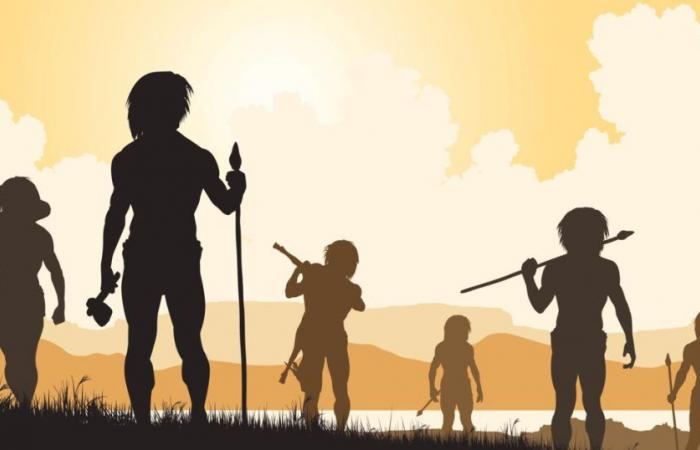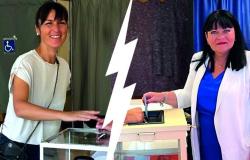The revelation by archaeologists of traces of Down syndrome on the skeleton of a Neanderthal child suggests that this species close to modern humans may have demonstrated a certain altruism towards those who were different from the norm, and more vulnerable .
It was while studying his inner ear that the researchers made this astonishing discovery. The skeleton of a child, belonging to the Neanderthal species, and having lived between 273,000 and 146,000 years agoshowed for the first time signs of certain belonging to Down syndrome. This genetic abnormalitycaused by the presence ofone extra chromosome 21can cause serious health problems. It is therefore surprising that this child, 6 years old at the time of his death, could have survived until then. Unless the hominid group had supported the motherand that several of its members have shows altruism. In any case, this is the theory of scientists, who have just published a study in Sciences Advances.
A syndrome never before seen in such an ancient hominid
Recent discoveries made on Neanderthals continue to advance our knowledge of this species. This hominid, long considered to have capacities well below those of theA wise manfinally seems to resemble us more and more. For example, we learned that they could also be artists, very clever hunters, or even the creators of clever inventions… And even that they buried their dead. It is also now thought thatHomo Neandertalensis could organize itself within its group to provide lasting assistance to one of its members.
In fact, Down syndrome causes, to varying degrees, cognitive delaysin addition toan increased risk of serious heart and thyroid problems. In the case of this child, whose remains were discovered in the Black Hole Grotto, from the province of Valencia, in eastern Spain, genetic and anatomical analyzes showed that he was definitely affected. Given the condition of his inner ear, he would have suffered from symptoms “highly disabling” including “au minimum complete deafnesssevere attacks of vertigo, and an inability to maintain balance“explains Mercedes Conde-Valverde, paleoanthropologist at the University of Alcalá (Spain) and lead author of the study, in a press release. “He is highly unlikely that the mother alone could have provided all the necessary care while meeting its own needs”, she continues.
Altruism, even among Neanderthals
It’s here first time that we discover the existence of this syndrome in such an ancient individual. And the fact that this child was not abandoned at the beginning of his life, even though he would have been very different from the others (at least if Down syndrome manifested itself in the same way in this species), surprised the researchers. . The Neanderthals “were able to provide altruistic care and support to a vulnerable member of their social group”writes the team behind the publication.
The Spanish cave in question was occupied by small groups of hunter-gatherers who settled there for short periods. Survival conditions must not have been easy for the mother and her child. “The group had to continually assist the mother, either by relieving her of child careeither by helping him with his daily taskseither both“, guess the specialists. And this practice was not known until now. It was assumed that the group could demonstratemutual aid, in a give-and-take system. But the child, unable to reciprocate, still lived six years despite everything. Which testifies, according to them, to the existence of altruism in this species, discovered in 1857 in the valley (of) of Neander, near Düsseldorf in Germany, and which never ceases to amaze us.
It might also interest you :
Autism: a paternal rather than maternal genetic inheritance!
Your child sleeps poorly: what if the cause is genetic?
Did Neanderthals know how to speak in metaphor?






